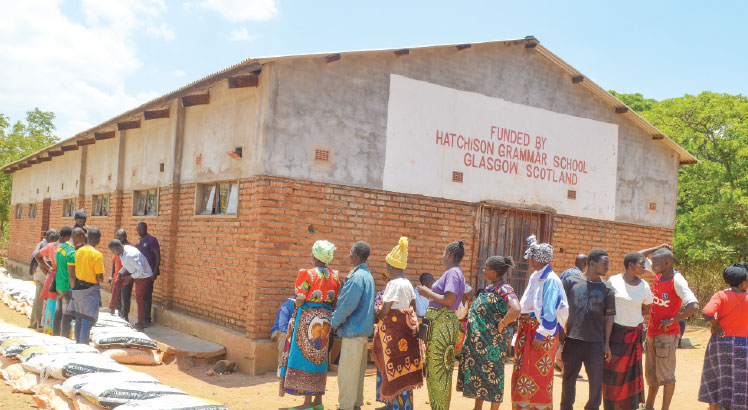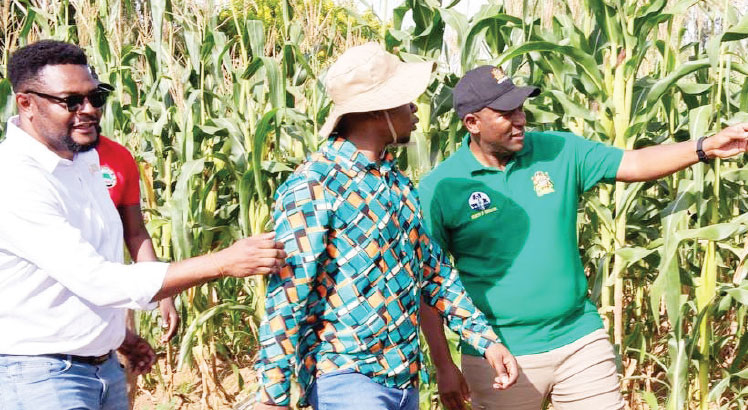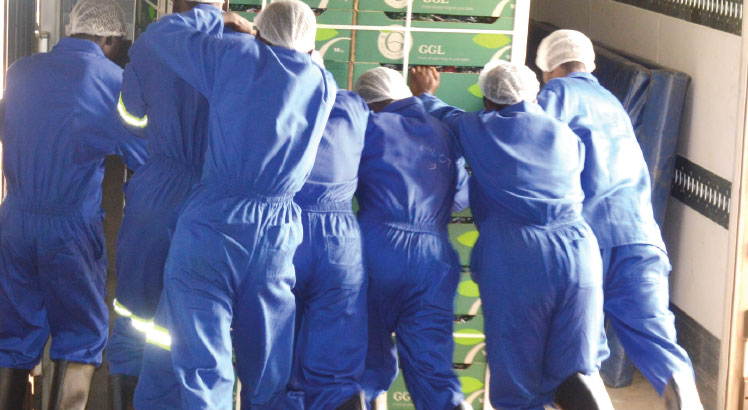As calls for restructuring of the Affordable Inputs Programme (AIP) continue, an analysis on subsidies from 2004 to 2023 shows that the country continues to live in denial that the support cannot make households food self-sufficient.
Done by the International Food Policy Research Institute (Ifpri), the analysis denotes that while fertiliser subsidies have helped Malawi become self-sufficient in maize as a nation, they have failed to enable most households to produce enough maize for self-sufficiency.
Titled ‘Fertiliser subsidies in Malawi: From past to present’, the analysis says reasons for this negative trend relates to population growth amid shrinking farm sizes, poor soil health and, also, logistical challenges in disbursing the farm inputs.
It reads: “First, even in years with favourable rains, millions of people need food support during the two or three months that constitute the lean season before the harvest of the following crop.
Beneficiaries await to redeem their AIP fertiliser
“However, in an average year, 13 percent of the population was food insecure during the lean season. Second, most Malawian smallholder farmers do not produce enough maize to be self-sufficient.”
While 75 percent of all households in Malawi grow maize, the analysis shows that only 17 percent grow more than they need to be self-sufficient, showing an important wealth gradient to these numbers.
The analysis further notes that most Malawians have to supplement their own maize production with maize bought from the relatively few large surplus producers or from importers.
It suggests that where the subsidy reduces the fertiliser-to-crop price ratio for a household, the household will be better off with the subsidy.
It adds: “In graphing the relation between yearly food production and the size of the subsidy programme, we note that the years of highest spending on fertiliser subsidies did not consistently result in the largest national harvest levels.”
In his State of the Nation Address last Friday, President Lazarus Chakwera said government will in the 2024/25 fiscal year continue to refine AIP.
He said this will aim to “strengthen beneficiary targeting, eradicating redemption malpractices, and enhancing the timeliness of our interventions.”
But Malawi Agriculture Policy Advancement Agenda (Mwapata) Institute executive director William Chadza said there is need for a reform pathway that provides for gradual reduction in beneficiaries.
Said Chadza: “Progress in improvements has been slow to warrant any meaningful impact. Of course, targeting seems to have improved and some beneficiaries seem to have been offloaded to other support programmes.”
Minister of Agriculture Sam Kawale said recently that government plans to use the successes drawn from the implementation of the National Economic Empowerment Fund (Neef) as an exit strategy for the AIP.
He said most farmers who accessed Neef loans for farming are expected to get bumper yields this growing season, as such, any beneficiaries of AIP will now be transitioned to access Neef loans so as to start reducing the numbers.
The post Malawi ‘in denial’on farm subsidies first appeared on The Nation Online.
The post Malawi ‘in denial’on farm subsidies appeared first on The Nation Online.
 Moni Malawi
Moni Malawi 

